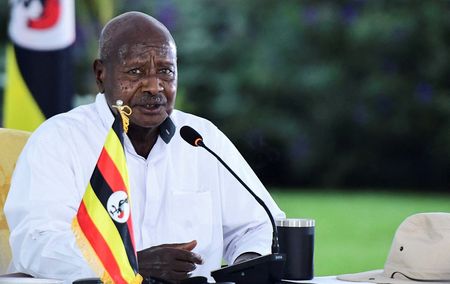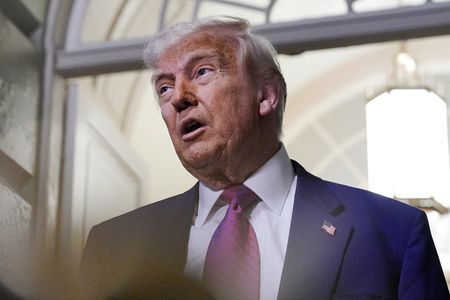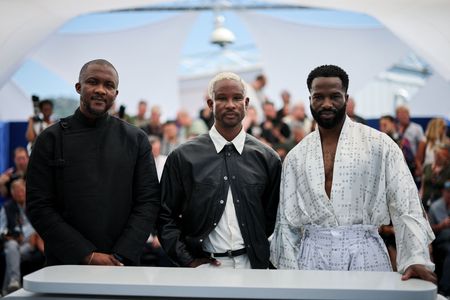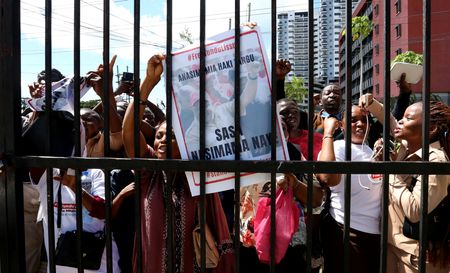KAMPALA (Reuters) -Uganda’s parliament on Tuesday passed an amended law that permits military tribunals to try civilians, prompting protests from the opposition who said the move violated a Supreme Court ruling in January that banned such trials.
The practice, in use for the last two decades, has long been criticised by opposition politicians and rights campaigners who accuse the government of using courts martial to silence opponents, which it denies.
In a post on the X platform, parliament said the legislation had been passed.
The head of the military, Muhoozi Kainerugaba, praised the speaker of parliament and government lawmakers for passing the bill. “Today, you proved you are fearless patriots! Uganda will remember your courage and commitment,” he said on X.
Military spokesman Chris Magezi said the law “will deal decisively with armed violent criminals, deter the formation of militant political groups that seek to subvert democratic processes, and ensure national security is bound on a firm foundational base.”
During a debate on the law, opposition politician Jonathan Odur, said the legislation was “shallow, unreasonable and unconstitutional.”
“There’s no legal basis to provide for trial of civilians in the military court.”
The next step will be for President Yoweri Museveni to approve the law for it to take effect.
In a ruling in January, Uganda’s Supreme Court forbade military trials of civilians, saying the tribunals lacked legal competence to handle criminal trials in a fair and impartial manner.
The verdict forced authorities to transfer the trial of a major opposition figure, Kizza Besigye, who was undergoing military prosecution for offences including treason, to a civilian court.
Besigye, who has previously challenged incumbent Museveni four times in elections, was detained in neighbouring Kenya last year and brought to Uganda to face a military court.
His lawyers and his party, the People’s Front for Freedom (PFF), have called the charges politically motivated.
Opposition leader Bobi Wine was also in 2018 charged in a military court for alleged illegal possession of firearms although the charges against the pop star-turned-politician were later dropped.
Human Rights Watch has previously criticised Uganda’s military courts, saying they did not meet international judicial standards of competence, independence and impartiality.
The courts also routinely use evidence extracted through torture of defendants while also ignoring other key fair trial rules, the rights group said. The military denies the accusations.
(Reporting by Elias Biryabarema; Editing by George Obulutsa, Ammu Kannampilly, Alexandra Hudson)







